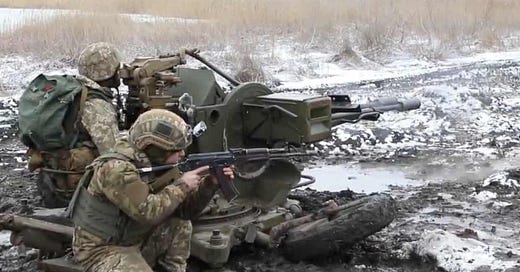There are two ways to face extreme volatility. One is out of fear and the other is to treat it as an opportunity. Yesterday was such a day. We already discussed this in the last report.
We are mostly influenced by the immediate and we become reactive by default. When it comes to markets, that is a poor strategy. One thing that may force us to become too reactive is probably excessive leverage. If you are a mature investor, high leverage should be avoided at all costs. Leverage comes out of unbridled greed too. So in times like these, you are forced to either pay a big price or count it as an opportunity.
Yesterday, the Nikkei was down almost 4%, India was down 5%, Germany and France were also down 4%. Finally, the US was also down to 3% at one point and finally, it ended up in green. But as an investor, one can worry about these movements but the strategy of the pros is to respond, not to react!
If you go back more than 100 years in history, external factors like war (and fears of war) have a limited impact on the markets. Take World War I for example. It happened from Jul 1914 to Nov 1918. It was one of the bloodiest wars of all time. More than 20 million lives were lost across the world combining soldiers and civilians.
One would have thought that would have been the end of the stock markets. The truth is after an initial plunge of 30% in 1914, the Dow rose almost close to 90% in 1915. And over the next four years the war lasted, the Dow was up by 43%. World War II started with Hitler invading Poland on 1 Sep 1939. The next day the Dow was up by 10%. Two years later, the Japanese Navy attacked Pearl Harbor on 7 Dec. The very next day the US entered the war. The immediate reaction was for the Dow to drop 3% but those losses were regained the very next month. Over the course of the war, the Dow rose by around 50%.
The other major wars that involved the US were during the Korean War between 1950 to 1953 and the Vietnam war between 1965 to 1973. During both these periods, the markets rose by 60% and 43% respectively.
The idea is not to downplay the destruction and atrocities war creates on humanity but to understand how it impacts the markets in general and look beyond the headlines and not pay much attention to the media talking heads.
It seems the current situation in Ukraine is well orchestrated and this can be long drawn. This no doubt will have an impact on the global economy eliciting more draconian responses from the western allies.
As for market watchers like us, there will be a slower exit of global emergency monetary policies. Even much before the Russian story started to play out, we have argued that the Fed tightening will be a maximum of three 25 basis points for the year when investment banks like Goldman Sachs, Morgan Stanley, JPM and BOA have gone for five to seven hikes for the year with the first hike being for 50 basis points. We still believe if there is a hike in March, it will be a quarter-point and a half-point hike if at all will shock us. And in Europe, it looks like there will be a delay in the pandemic-induced stimulus policies.
Another thing that will come out of the present situation is increased discussions on cyberattacks. The West might unite publicly to launch cyberattacks on Russia.
If the situation will lead to further economic disruptions, the Democrat-led Congress will be quick to resurrect their dead stimulus plans again. I am sure President Biden will not want a crisis opportunity go to waste.
If you received value from this post, and you’d like to send some back, or if you’d like to signal to me to continue spending time on these types of explorations, feel free to buy me coffees (thank you!):
So, there we go. Thanks for reading Breezy Briefings. If you enjoyed this, I'd really appreciate it if you could take a second and tell a friend. Honestly. It makes such a big difference.
Forward this email. Recommend the newsletter. Share on Twitter, WhatsApp, Telegram, LinkedIn, Slack, wherever!
Join Breezy Briefings’ Official Telegram Channel: https://t.me/BreezyBriefings
Abraham George is a seasoned investment manager with more than 40 years of experience in trading & investment and multi-billion dollar portfolio management spanning diverse environments like banks (HSBC, ADCB), sovereign wealth fund (ADIA), a royal family office and a hedge fund. Currently, he is a co-founder of a new hedge fund where foreign citizens can invest in Indian growth stocks like Tanla operating in hyper-growth markets like CPaaS.




